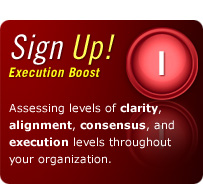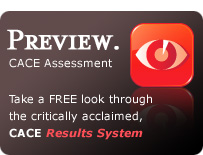Interpersonal Expertise Tip: Practicing Honest Influencing (vs. Manipulation and Control)
February 5th, 2010
Whether we notice it or not, every day is filled with attempts to influence others – from what goals we want to pursue with others to what we will eat to how to raise our kids with our significant others. In other words, we are constantly negotiating with others. One of the major myths of negotiation is that one should “leave the table” feeling as though one has won or received what one wants at the expense of others.
This “me vs. you” negotiation mentality often leads to manipulative and controlling negotiations filled with traps and smoke screens. This may lead to short term victories, but in the end this style of interacting destroys the possibility of long-term, effective and satisfying relationships. Honest influencing and negotiation helps build a long term”win-win” relationship focusing on mutual benefit and success. When we learn how to negotiate with others honestly, even when others are not doing so with us, we add another piece of the Interpersonal Expertise puzzle.
Honest influencing can be practiced by understanding the value of “win-win” experiences for all involved and how to bring them about more frequently. Here are some ways people have been able to practice honest influencing:
- Become clear about the value on win-win experiences. Win-win is a term that has now become quite popular. Less popular than using the term is the actual attitude behind it. Many of us have been encouraged to use the terminology of win-win without enough encouragement to actually have a win-win mindset. In order to actually change our mindsets, we must view win-win as an approach that is better than simply thinking about our own interests. We have found that becoming clear how a win-win mindset is actually in our best interests is critical. From increased trust to more connection to longer-term relationships, win-win is worth the transition from dishonest and manipulative mindsets to truly honest influencing.
- Clarify the difference between honest influencing and dishonest manipulation. Sometimes we can have a desire to honestly influence others without the awareness that we are often dishonestly manipulating them. To practice more honest influencing, it can be helpful to know the many differences between the two approaches. For example, honest influencing requires non-threatening non-verbals, true valuing of others’ opinions and emotions, and shared decision-making. Dishonest manipulation often relies on threatening non-verbals (stares or intimidating silences), mind games (like put-downs or humiliation), and/or marginalizing opinions of those who disagree with us (making these opinions seem “crazy” or “naive”).
- Increase the amount of honest influencing in your life (and decrease the amount of dishonest manipulation). The path from dishonest manipulation to honest influencing can take practice and time. It is often unrealistic to assume that we can move from one mindset to the other in quick and easy ways. One common barrier to this transition is having to deal with dishonest manipulation in others while we attempt to deal with them in more honest ways. Practicing more honest influencing can be facilitated by beginning to minimize interactions with those who do not seem to value honest influencing (slowly, if necessary) while seeking out friends, clients and bosses who value this mindset more. This does not have to happen overnight (for example, many of us cannot afford to quit a job with a manipulative boss right now), but with a commitment to more honest influencing, we can slowly make the transition (for example, keep our eyes open for other job opportunities with bosses that practice more honest influencing).
NOTE TO THOSE USING THE MISSION FULFILLMENT SYSTEM: You can move toward practicing more honest influencing by adding a new Objective to your system by using the “Add New Item” link (for example, “Practice more honest influencing”). You can then develop a SMART Goal related to that new Objective by using the “Add Subitem” link to the far right of the new Objective (for example, “Identify people who seem to value win-win outcomes and spend more time around them.”).
FOR THOSE WHO ARE NOT ON THE MISSION FULFILLMENT SYSTEM: Click here to for more information and click here to sign up.
FINAL NOTE: If you were linked to this article by a video or email, please return to that link and proceed with any other instructions that you deem helpful. For more Execution Excellence and Interpersonal Expertise tips and tools visit our site at: www.excellenceuniversity.net
Article Filed under: 2. Interpersonal Expertise Tips



3 Comments Add your own
1. Lindsey | August 9th, 2014 at 7:38 pm
I think this article is extremely important because it reminds us that we should not be in a “give and take” sort of relationship; it should be balanced, or “win-win” oriented. I find that often times, I am reluctant to let people in or to get too close for this very reason. Dishonest manipulation happens more often than not; it’s almost as if one person is viewed as providing more opportunities for another, and not in a necessarily good way. For example, I had a friend who appeared to listen to me and support me through tough times, but would then use that against me to say I would “owe” them a favor. I finally realized they were not my friend, they were just using me to get what they wanted, and they kept tabs in order to have something to use against me. I have deliberately focused on removing these people from my life now because I see they add no benefit. Relationships should be positive and balanced, or win-win oriented; it should not be a competition. I find this mindset is too prevalent. If one wants to be in control, one should exercise this control over themselves, not others! Thank you for this great article. It is something that should really be kept in mind more often.
2. Bryce Maxwell | August 18th, 2014 at 4:48 pm
I’m with Lindsey. After reading her informational comment a specific term comes to mind that, I think, sums up what it is she is trying to touch on. That term is “reciprocity.” Relationships are far less likely to corrode and wither away when both parties feel that the other party is contributing as much to the relationship as they are (excuse me for not having “evidence” to back it up, I’ll trust that you’ll research it for yourself). Notice here how important perception is when speaking about working relationships or any other interpersonal exchange. Even if both party’s feel that they are reciprocating that actions of the other, a perceived lack of reciprocity can still cause issues. This is precisely why Dr. Higley encourages clarity and honesty when communicating with another person (in addition to Empathy, Unconditional Positive Regard, and Authenticity – which overlaps with honest – which are key themes on Rogerian Psychology).
Being aware of these concepts when attempting to “sell and idea” to a fellow coworker is crucial to ensuring that the coworker will not feel obligated as the result of some sort of jedi-mind-trick manipulation. Obviously though, this is all much easier said than done 😉
3. Sofia | August 19th, 2014 at 4:38 pm
I really enjoyed this article. Going off of what Lindsey and Bryce said, I feel that some relationships are very one-sided. People do not do things because they genuinely want to, it is because they expect something in return. I feel that people sometimes have the tendency to feel entitled to certain things and it adds to this “me vs. you” mentality. The idea of dishonest manipulation reminds me of some of the logical fallacies people commit. The mind games people may play in order to manipulate another sounds a lot like the ad hominem fallacy. That fallacy occurs when someone attacks their opponent’s personal traits or character to undermine their argument (www.yourlogicalfallacyis.com). It will do people a world of good to read this article and heed its advice! Work as well as personal relationships can vastly improve if people practice honest influencing.
Trackback this post | Subscribe to comments RSS Feed
Leave a Comment
Some HTML allowed:
<a href="" title=""> <abbr title=""> <acronym title=""> <b> <blockquote cite=""> <cite> <code> <del datetime=""> <em> <i> <q cite=""> <s> <strike> <strong>